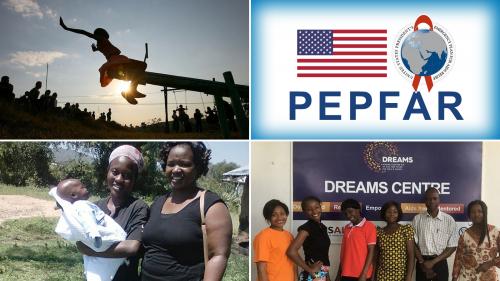FDA’s Comprehensive Response to HIV — Part II
FDA plays a pivotal role in advancing HIV therapies in underserved global markets through the President’s Emergency Plan for AIDS Relief (PEPFAR).

By: Ned Sharpless, M.D., Acting Commissioner
As I discussed in the first part of this Voices article, the FDA is engaged on many fronts in the effort to combat HIV, applying its focus on the best available science, combined with important collaboration with many different stakeholders, industry, and patients. Yesterday I looked at some of the issues we are dealing with on the domestic front; today, I will examine some of the work we are doing globally.
Making a Global Impact Through PEPFAR
FDA plays a pivotal role in advancing HIV therapies in underserved global markets through the President’s Emergency Plan for AIDS Relief (PEPFAR). The PEPFAR program was created in 2003 to address the global HIV/AIDS epidemic in the hardest hit countries. PEPFAR was designed to bring together various federal government agencies that are involved in fighting the epidemic by creating a comprehensive unified response to provide the most comprehensive, coordinated, and targeted interventions.
FDA’s role is to ensure that the safety, efficacy, and quality of HIV drugs distributed under PEPFAR is the same as for drugs used to treat HIV patients in the U.S. FDA does this by reviewing anti-retroviral drugs (ARVs) intended for PEPFAR under the same standards applied to drugs intended for the U.S. market. The only difference is that some of the drugs reviewed for use in PEPFAR receive tentative approval, which means that the drugs may not be sold in the U.S. due to intellectual property protections, but they can be purchased by PEPFAR in its partner countries.
FDA’s work with PEPFAR has been integral to the program’s success, by focusing on the safety, effectiveness, and quality of ARV treatments for use in high-burden countries. Further, FDA expedites reviews of drugs that will be used in PEPFAR, so these drugs can get to countries with high rates of HIV infection as quickly as possible. Increased availability of FDA-reviewed ARVs for PEPFAR has resulted in reduced costs and increased access to life saving treatment in more than 50 countries and supports more than 14 million people.
FDA has approved or tentatively approved 216 applications for single and combination antiretroviral drugs for use by PEPFAR. Further, because each application can contain multiple drug products, these 216 applications contain more than 270 ARVs. Although some of these applications have been withdrawn, many are still available for use by PEPFAR. Increased availability of FDA-reviewed ARVs for PEPFAR has resulted in reduced costs and increased access. PEPFAR, now works in more than 50 countries and supports more than 14 million people with FDA-reviewed ARVs. FDA’s work with PEPFAR has been integral to the program’s success, by focusing on the safety, effectiveness, and quality of ARV treatments for use in PEPFAR countries.
The impact of FDA-reviewed ARVs, however, goes beyond PEPFAR. Other global health entities, such the World Health Organization (WHO) and the Global Fund to Fights AIDS, Tuberculosis, and Malaria, place the FDA-reviewed ARVs on their lists of quality-assured ARVs. These lists are also used by other global procurement entities to buy trusted products, thus amplifying downstream effects of FDA’s PEPFAR program. For example, a 2017 analysis by FDA found that about 45 percent and 83 percent of FDA-reviewed ARVs were utilized by WHO and Global Fund, respectively, to enhance their own formularies.
Supporting a Global Network to Fight HIV
FDA is also working to develop additional ways to support the global fight against HIV. For example, in December 2018, we initiated a pilot program to test whether FDA sharing minimally redacted versions of its reviews of ARVs with WHO could speed WHO’s own review process, thereby getting the WHO reviews to high-burden countries sooner. In June 2019, WHO received FDA’s unredacted reviews of two pilot applications, after appropriate consents. The shared packages also included reviews of drug master files, which can include the recipe of how active pharmaceutical ingredients are made. This was the first time FDA has shared drug master file reviews with external parties. If successful, this novel regulatory collaboration could help get PEPFAR ARVs into high-burden countries sooner.
Over the last 30 years, advancing the development of effective treatments and accurate diagnostic tests for HIV has been one of FDA’s highest priorities, and it will remain so. We still have a long way to go in ending this global epidemic, and to do so, we will continue to listen to the voices of patients, to interact with the public health community and other stakeholders, and to do the diligent scientific research necessary to transform the prevention, diagnosis, and treatment of this deadly disease as we enhance global health security and protect America’s borders.
The photos at the top of this page represent real "Stories of Hope" courtesy of PEPFAR.gov.

